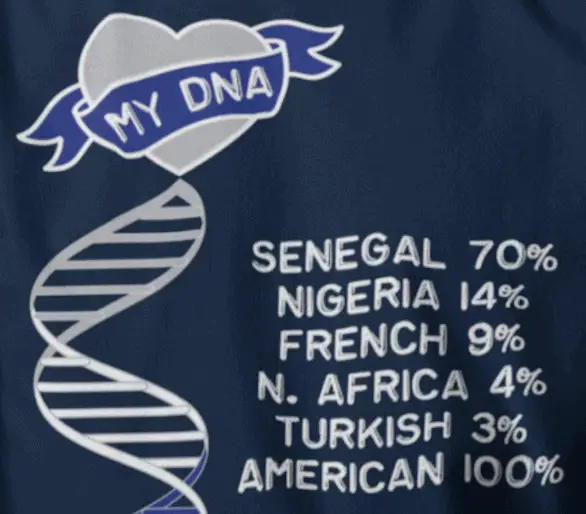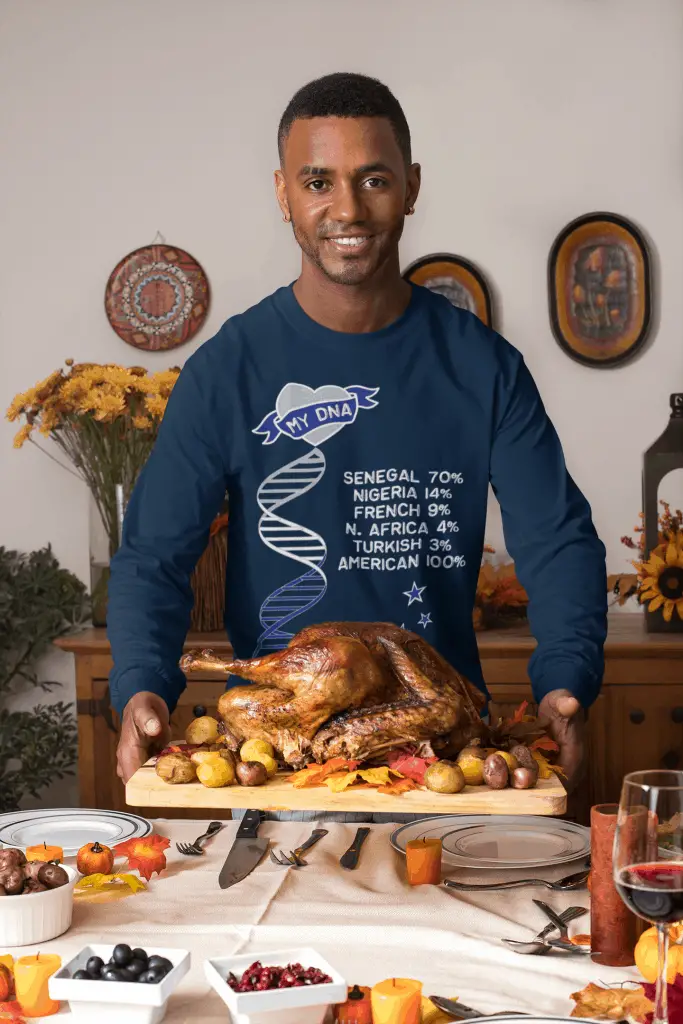
Many African Americans and others are using an African DNA test to get answers about their ethnic ancestry.
Typical questions include the following:
- How much of my genetic heritage is African?
- What regions of Africa do my ancestors come from?
- Where does the remainder of my heritage come from?
- Is my African ancestry from my father’s lineage or my mother’s?
- Do my physical features reflect African ancestry or something else?
Fortunately, there are several reasonably-priced African DNA tests that answer these and other questions about one’s ethnic ancestry.
The tests all use home test kits and sample collection is easy and painless. Depending on which company you use, you might wipe some cells from inside your cheek with a little swab or spit some saliva into a tube. No blood is required.
Here are my recommendations for anyone interested in an African DNA test. Click each link to learn more.
My First Choice for an African DNA Test is 23andMe
23andMe now has the most detailed report on African ancestry. Any of the following Sub-Saharan regions can appear in their Ancestry Composition report.
- Somali
- Sudanese
- Angolan and Congolese
- Nigerian
- Ethiopian & Eritrean
- Ghanaian, Liberian & Sierra Leonean
- Southern East African
- Senegambian & Guinean
- African Hunter-Gatherer
- Broadly Congolese and Southern East African
- Broadly West African
- Broadly Northern East African
- Broadly Sub-Saharan East African
23andMe also checks for ancestry from any of 16 locations in the Caribbean.
NOTE: Very few people outside Africa are 100% African. 23andMe and the other autosomal DNA tests described below will classify the remaining portion of your ancestry using other populations.
The 23andMe test will also identify other people in the database who share common ancestors with you. With more than ten million people in the database you can find and contact many genetic relatives. Some may have information on your ancestors that you lack.
Furthermore, this test checks enough of your mitochondrial DNA and Y-DNA (for men) to identify your haplogroups. Some of these are directly linked to African heritage on the direct maternal or paternal lines.
Another Good Choice is AncestryDNA
The AncestryDNA test is similar to 23andMe and another good African DNA test.
With over 15 million testers AncestryDNA has the largest DNA database so you will see the most genetic matches.
The test includes an Ethnicity Estimate that summarizes the percentage contributions of different regions of the world to your overall ancestry. That estimate now breaks African Ancestry into nine regions:
- Northern Africa
- Senegal
- Ivory Coast / Ghana
- Benin / Togo
- Cameroon / Congo and Southern Bantu People
- Mali
- Nigeria
- Eastern Africa
- Africa South-Central Hunter-Gatherers
If you have a family tree on Ancestry, they will compare your tree with those of your genetic matches. That may place you in any of 95 genetic communities for African Americans in the southern United States, Central America, or Caribbean islands such as Jamaica, Haiti, or the Bahamas.
AncestryDNA does NOT check or report haplogroups like 23andMe does.
Multiple DNA Tests at Family Tree DNA
Family Tree DNA offers three different DNA test types. You can order any one of them now and they will attempt to save your DNA sample for up to 25 years. That means you can order additional test types later without submitting a new sample.
This is especially important for testing older relatives who may not be around to test later.
Family Finder is similar to 23andMe and Ancestry DNA. It is a favorite of genealogists, including those interested in African American genealogy.
The company will compare your DNA against a database of other users to find genetic matches. Most often these genetic matches will be cousins, having a common ancestor with you somewhere in the last five or so generations.
By emailing your matches you can connect with previously unknown relatives and learn much more about your family tree.
As part of the Family Finder test, you receive a myOrigins report where the company compares your DNA with over 60 reference populations from around the world. This is a biogeographical analysis of the DNA you received from ALL of your ancestors.
The African part of your DNA may place you in any of four sub continental groups based on similarities to certain scientifically studied populations. The groups and populations are as follows:
- Central African: Biaka Pygmy, Mbuti Pygmy
- East African: Bantu (Kenya)
- Southern African: Bantu (South Africa), San
- West African: Mandenka, Yoruba
Y-DNA Test at Family Tree DNA
Family Tree DNA also offers a Y-DNA test, which tracks your paternal line. Since only men have a Y-chromosome, only men can take this test. But women can still test a man from their paternal line, e.g. a brother, a father, a brother of your father, or a son of your father’s brother.
Like Family Finder, this test finds genetic matches who share a common ancestor. But with the Y-DNA test you know the common ancestor has to be a male in the direct paternal line like your father’s father’s father etc.
The Y-DNA test will also reveal a man’s Y-DNA haplogroup. And many haplogroups are clearly tied to origins in sub-Saharan Africa.
mtDNA Test at Family Tree DNA
Both men and women have mitochondrial DNA (mtDNA) to test. But only women pass it on to their children. So mtDNA is the test to track your maternal line. That’s your mother’s mother’s mother etc.
The mtDNA test also reveals your maternal haplogroup, which relates directly to the origins of your maternal line. And some of those are clear indicators of African origin.
Be Wary of Other “African” DNA Tests
There are several DNA tests being marketed specifically to people of African heritage. Yet most are overpriced or have significant limitations. See this article for a review of one such test by an African-American genealogist.
Celebrate Your African Ancestry

You can use the results of your African DNA test to create personalized shirts, hats, mugs, posters, etc. Designs include colored maps, trees, and helixes. Order a unique gift for yourself or a family member. Part of your purchase goes to Youth Celebrate Diversity. Just browsing the catalog is fun. Check it out now.
